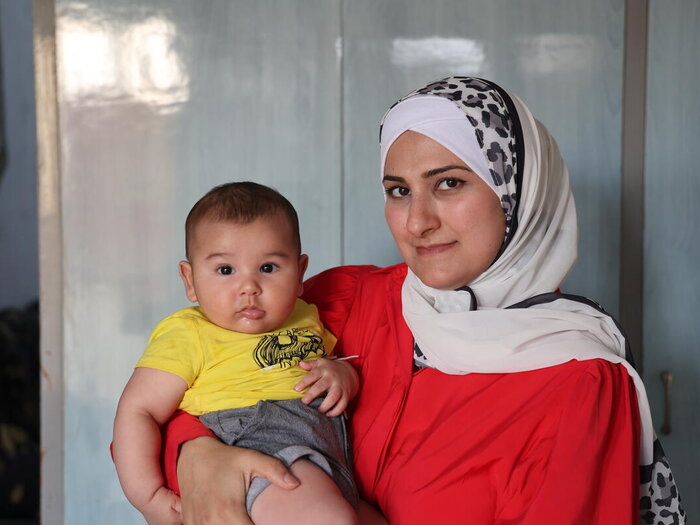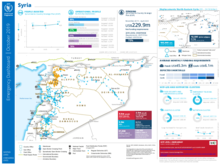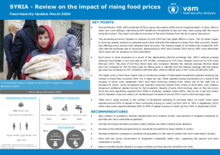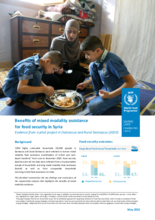Syrian Arab Republic
- 12.1 million
- people are food insecure
- 3.2 million
- people receive food from WFP each month
- 6.7 million
- people are internally displaced
Over a decade of conflict, coupled with consecutive economic and other shocks, has led to unprecedented hardship in Syria. The earthquakes that hit north and west Syria in February 2023 topped up a long-standing humanitarian crisis in the country, leaving exhausted families with next-to-nothing.
Before the earthquakes, 12.1 million people were already in the grip of hunger and 2.9 were reeling on its edge. Nutrition was also emerging as a significant concern. Stunting (restricted growth due to malnutrition) and maternal malnutrition reached unprecedented levels by the end of 2022.
The earthquakes further complicated access to food, with significant damage to infrastructure including bakeries and warehouses. Thousands of people were displaced and/or became unable to earn a living.
Due to escalating needs in Syria and limited resources, WFP had to cut down its caseload by over 40 percent in July 2023, reducing from 5.5 million people to 3.2 million people. Most affected families were already receiving half rations due to funding constraints.
WFP calls on its international partners to step up the support needed to reach those most in need of urgent food and nutrition assistance.
What the World Food Programme is doing in Syria
-
Food assistance
-
WFP provides 3.2 million people in all 14 governorates with food assistance, to prevent them from slipping further into hunger. We use real-time data to determine who is most in need. We are scaling up our cash-based assistance, where families receive value vouchers to buy food from WFP-contracted retailers. This helps to stimulate local markets and production, creating job opportunities and injecting resources along the local supply chain.
-
Nutrition
-
WFP's nutrition programme supports over 300,000 pregnant and breastfeeding women, girls and children aged 6 months to 2 years across all 14 governorates, to prevent and fight malnutrition. It provides supplementary food and value vouchers to diversify diets and improve nutrition.
-
School meals
-
WFP provides fortified snacks and fresh meals to 600,000 schoolchildren in Syria, along with electronic vouchers for their families to redeem at stores. This helps address education challenges and prevent micronutrient deficiencies and short-term hunger. The school meals programme employs vulnerable women, many widowed by the conflict, and provides them with training and an income so they can support their families.
-
Livelihoods and resilience
-
WFP supports Syrian families in restoring their livelihoods and improving their food security and resilience, through restoring infrastructure such as irrigation canals and bakeries. This has a significant return on investment, where just US$14 million can irrigate 28,000 hectares of land, help 600,000 people transition off food assistance, create jobs for 84,000 people and increase wheat production by 90,000 tones.
Syrian Arab Republic news releases
Go to pageFind out more about the state of food security in Syrian Arab Republic
Visit the food security analysis pageOperations in Syrian Arab Republic
Contacts
Office
Mezzeh, Damascus, Syria
Damascus
Syria




